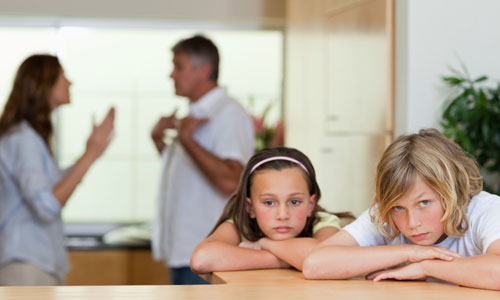9 Tips on How to Tell Your Children You’re Getting a Divorce

Every day we hear about someone or the other getting divorced. It has the worst effects on the kids as a divorce can be a very traumatic thing for a child. The way you tell your child about the divorce can affect the kid for the rest of his/her life. We give you some tips on how you should break the news to your children.
1. Time it well
Don’t just bombard the child with the news when you are busy with something else or when the child is already facing other emotional problems in life. Wait for a more appropriate hour. Also, avoid telling the child anything until everything is finalized. If you tell your child that you “may” be getting a divorce then it will give your son/daughter a false hope. So, it is wise to break the news when both you and your spouse are sure of it. This way, the child will know that there is no chance of the decision getting changed.
2. Be clear about the exact reasons
Before you tell your kid about the divorce, be very sure that you are aware of the exact reasons behind the decision. This will help you explain things in a better way to your child. If you yourself are unsure about what exactly led to this or how things became so difficult, then you will not be prepared enough to answer the many questions that your child may ask as a reaction to the news.
3. Do it when your partner is also present
It will be better if you and your partner break the news to the child together. You can decide who will answer what sorts of questions and you can also plan the way you want to put the announcement. Even if your kid decides to leave the room after hearing the news, give him/her some time and then you and your spouse should go together and try to talk to the child.
4. Keep it simple
Always keep the age of your child in mind when you break the news. If the child is very young, then you must keep things very simple and phrase them in a way that will help the child understand. Even if your kids are teenagers or adults, it is advisable that you do not give them extreme details about why or how things didn’t work out. Also, be aware of the kind of language you use with the child.
5. Stay clear of the blame game
It will not help the situation at all if you start playing the blame game while sharing the news with your child. It will fill the kid with animosity towards a particular parent and will also confuse the kid. Also, make sure to tell the child over and over again that this is not his/her fault. Under no circumstance should the child blame himself/herself for your decision.





